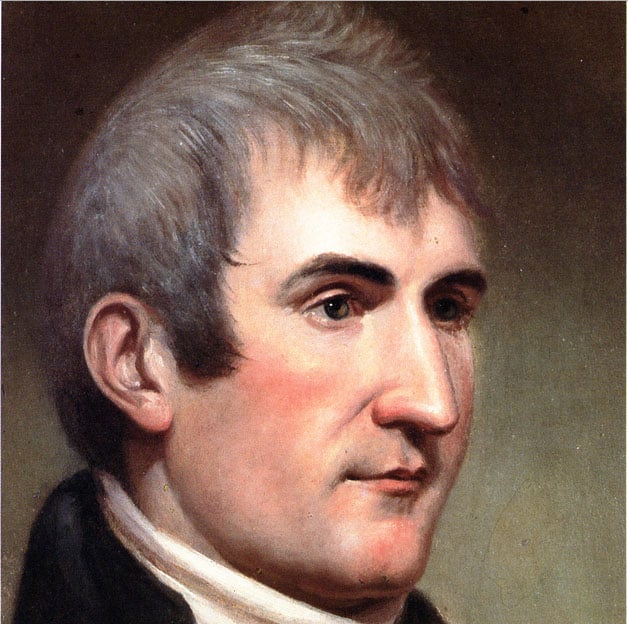I don’t
believe I’ve read anything about the Louisiana Purchase or the Lewis and Clark
expedition since grade school. (Which of course was only a couple years after
Lewis and Clark returned from their trip.)
Anyhow, I
was amazed by the sheer heroism of this expedition, undertaken because of
Thomas Jefferson’s vision to find an overland route to the Pacific Ocean.
Meriwether
Lewis was a Renaissance man. Son and step-son of military men, he was an Army
officer personally selected by Thomas Jefferson as his own right-hand man.
Lewis was like a son to the President.
Jefferson
brought Lewis into the White House as his personal assistant for two years. Lewis
was already widely traveled, an accomplished outdoorsman, marksman, hunter, and
Army officer. But the President personally tutored him. Then as the expedition
began to take shape, Jefferson arranged for Lewis to be given a crash course in
map making, surveying, botany, mathematics, anatomy, and medicine by the
leading scientists of the day.
Starting
in May of 1804, Lewis led a troupe of 30 men, plus one woman (Sacagawea) over
the entire span of the United States. Along the way they built boats, faced down
grizzlies, survived blizzards, attempted peace treaties with multiple Indian
tribes, all the while making maps and doing scientific research.
During
this Expedition of Discovery, as it was called, Lewis discovered and described 178
new plants and 122 species and subspecies of animals. Lewis served as the
expedition's visionary leader, indomitable driving force, and, incredibly,
doctor. (He delivered Sacagawea’s baby.)
When the
expedition returned in September of 1806,
Lewis and Clark were national heroes. Theirs was the first
transcontinental expedition to the Pacific Ocean.
They
received financial rewards, public acclaim, and career advancement. Thomas
Jefferson appointed Meriwether Lewis as Governor of the Louisiana Territory in
1807.
But Lewis’
post-expedition life began to spiral downward. He desperately wanted to marry,
but failed to find the right woman. Though he was a tremendous explorer and
leader, he was a terrible politician and administrator. He got into financial
difficulty and struggled with depression. He self-medicated with alcohol and
laudanum.
In 1809 on
a trip to Washington D.C. he took his own life. He was only 35 years old.
I didn’t
know, or didn’t remember, how Meriwether Lewis’ story ended. And I’ve been
doing a lot of thinking about what to make of it. A few observations:
- Accomplishment cannot bring contentment. It’s hard to imagine a nobler accomplishment than the Lewis and Clark Expedition, or a more gifted leader than Meriwether Lewis. But even his great heart longed for more. What happens if you meet all your goals, but still feel empty inside?
- Alcohol and drugs are deadly traps that have been ensnaring even the best and brightest for centuries. They contributed to the untimely death of one of America’s greatest men.
- Finishing well in this long race of life is harder than winning early. And if you die without Christ, worldly success means nothing. I don’t know if Meriwether Lewis was a Christian, but if he was, the evidence of his faith seems very slim.
